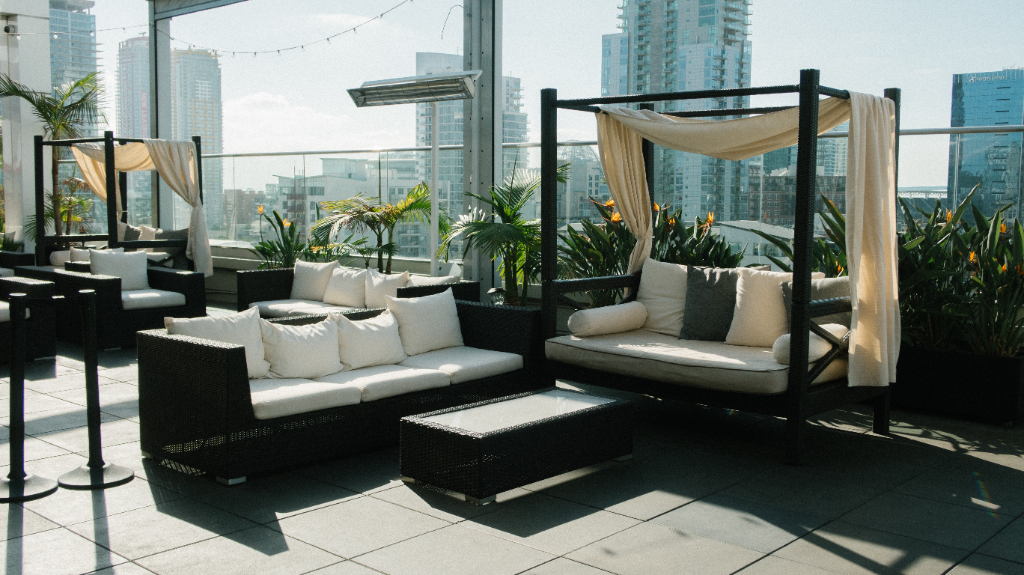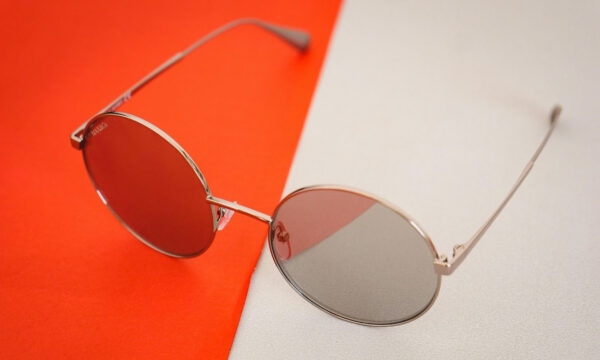Everything you need to know bout Alumawood

When starting to shop for a patio cover, one may wonder about the various materials available. You probably are familiar with the standard options: vinyl and wood. However, chances are consumers will keep seeing a new material coming up.
Alumawood is a manufactured material common in patio covers and other outdoor structures. It provides a unique alternative to wood that could be exactly what you need.
What’s Alumawood?
Alumawood gets its name from the fact that it’s an aluminum product made to look just like wood. It is embossed and painted to give it a wood look that’s quite realistic. It also comes in the same shapes as natural wood, specifically cedar.
Alumawood is a brand name. There’s no generic term to define the material. It comes from the manufacturer who first created and manufactured it, Amerimax. Amerimax is a company that focuses on producing rainwater systems for homes, including gutters and downspouts. It’s part of the OmniMax International company that produces building materials.
It’s able to be used in the same ways as wood because it looks, acts, and feels like real cedar. Alumawood is a popular material option for patio covers.
What are the benefits of Alumawood patio covers?
While one certainly can use wood or aluminum for their patio cover, choosing Alumawood gives the consumer the best of both worlds. Belle News explains that this product allows one to get the soft look of wood with the durability of aluminum.
When looking at the benefits, one can see it’s very much like aluminum. It outperforms wood, though, in many areas, including:
Low-maintenance
Waterproof
Rust-resistant
Bug-free
Good value
Low-maintenance
Because Alumawood is an aluminum product, it requires the same maintenance level as aluminum, which is hardly any. Don’t let the paint confuse you. It’s a long-lasting paint designed for a lifelong look. Unlike wood, one won’t have to strip the paint and repaint it.
It won’t warp, peel, rot or crack, which are concerns one will have when using wood. One may need to spray it off from time to time, but other than that, there’s very little one needs to do to keep it looking amazing.
Waterproof
Unlike wood, Alumawood won’t soak up water. The design of one’s patio should allow the water to run off into the gutter system. The panels have a design that interlock for tightness, so there’s also no worry about leaks. Water won’t harm the material at all. In fact, a good rain every now and then can help it to stay looking its best by washing away dust and grim.
Rust-resistant
One concern with metal is always rust. Aluminum doesn’t have this issue. It resists rust so that the Alumawood patio cover will never develop it no matter how wet of a climate in which one lives. Even the connectors, which are usually steel that’s susceptible to rust, receive a treatment to prevent rust.
Consider any metal add-ons one will have with wood, such as connectors and braces. These are all prone to rust. Unless one takes additional steps, which means additional costs, they won’t be so lucky to avoid rust as they would be with Alumawood.
Bug-free
While it may look like wood, it isn’t, which means bugs are no problem. They won’t even bother the Alumawood patio cover, which is good for one’s home since the cover will attach and could allow bugs to get into the home if they infest the cover.
Good value
Alumawood is an overall good value when one thinks about what they get. The cost is far less than with wood because it requires far less upkeep and work than wood. When comparing it to aluminum, one gets something easier to install at a comparable cost. Alumawood will pay off in the long run because it outlasts other materials while giving consumers a soft, fresh look.
What are some concerns about Alumawood patio covers?
As with any product, there are some downsides to Alumawood as a patio cover:
More easily damaged than wood
Limited options
More expensive than wood
Add-ons are tough to do
More easily damaged than wood
Wood is fairly sturdy when facing weather elements. Alumawood is more similar to aluminum in that hail can cause serious damage to it. Plus, if one has hail or a serious storm, it will produce a lot of noise like one would get with aluminum. Meanwhile wood absorbs the noise, keeping things quiet for any homeowner.
Limited options
Wood is a bit more versatile in that the consumer has far more colour options. One can also get more shape options and sizes of wood than Alumawood. If one wants something highly unique, then Alumawood probably won’t be the best fit. However, if one wants a classic look, the limitations with Alumawood shouldn’t be an issue.
More expensive than wood
Alumawood does cost more than wood. It requires more expensive materials and manufacturing. However, as mentioned, in the long run, wood requires more maintenance and work to keep it looking good, so the costs do balance in a way.
Add-ons are tough to do
Another issue consumers will run into with Alumawood is that adding on things will be more difficult than it is with wood. One can’t drill into it without creating a permanent hole that’s tough to patch. There’s no room for error. In addition, drilling into it may void one’s warranty and create future issues, such as leaks.
If one wants to add a swing or even lighting, one needs to plan ahead and include that in their patio cover design. Otherwise, one could face potential issues and damage the integrity of their cover.
Wrapping up
Now that you know all about Alumawood, you may want to research different patio covers using this material. Seeing it for one’s self should help the consumer decide if it’s the right material choice for them. Go ahead and weigh the pros and cons, along with checking into all other options. However, we think that what most will find the overall best choice, in the end, is Alumawood for style and price.
The editorial unit
























Facebook
Twitter
Instagram
YouTube
RSS